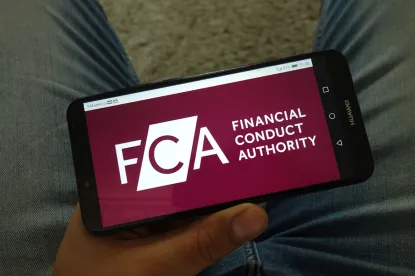In a decision that will influence how policyholders and insurers around the world address business-interruption coverage for COVID-19 losses, the English High Court recently handed down its much-anticipated judgment in the “Test Case,” The Financial Conduct Authority (FCA) v. Arch et al. The High Court’s comprehensive analysis will likely serve as an additional tool in policyholders’ arsenal in the ongoing battles over COVID-19 coverage.
The Panel, composed of two well-respected judges, one from the High Court (the UK’s trial court) and the other from the English Court of Appeal, analyzed 21 sample policy wordings in coverage extensions for business-interruption losses due to disease or the issuance of public authority orders. (Many of these wordings are also found in policies sold to US policyholders.) The High Court found that the COVID-19 pandemic and ensuing government actions fell within the coverage provided by the sample policy wordings.
This judgment in the policyholders’ favor belies insurers’ arguments––in court and in the media—that their policies cannot be read to cover COVID-19. Instead, the judgment shows that it is reasonable for policyholders to read certain policy language regarding coverage for disease or the issuance of public authority orders as providing business-interruption coverage for COVID-19 related losses. The High Court reached this conclusion through application of well-settled principles of policy interpretation (similar to those employed in the US), which require insurers to accept any reasonable interpretation that supports coverage. While the High Court rendered different conclusions with respect to each sample policy wording, the judgment clearly shows that, after careful analysis of the specific policy language and extensions, as well as of the facts leading to and surrounding the losses of a particular business, coverage indeed can be available for COVID-19 business-interruption losses.
The Test Case’s Origins
As in the US and around the world, the COVID-19 pandemic has affected the business operations of many policyholders in the UK. Businesses suffered significant revenue and income losses, and some incurred extra expenses, resulting in a cascade of insurance claims under their business interruption (BI) policies. These claims totaled billions of pounds. Since then, insurers have disputed whether their policies provide coverage.
The FCA, the consumer regulatory “watchdog” in the UK sought to resolve on an expedited basis some of the key issues insurers were raising. For the first time in its history, the FCA engineered a so-called “test case” process. The FCA approached 56 insurers and sought information on their business-interruption policies, as well as how insurers intended to handle COVID-19 claims. The FCA then selected the 21 sample policy wordings that appear in business-interruption insurance policies that the FCA believed reflected some of the main issues in dispute. Ultimately, 370,000 policyholders were included in the Test Case.
The FCA brought the Test Case before the Commercial Court, Financial List of the High Court of England and Wales, a trial level court in the UK Experienced solicitors represented both the FCA and insurers.
Lord Justice Flaux, from the English Court of Appeal, and Mr. Justice Butcher, who sits in the Commercial Court, heard oral arguments during eight days in July. On September 15, 2020, they issued the judgment in the name of the High Court.
The Sample Policy Wordings
The sample policy wordings covered disease and/or denial of access by a public authority. They contained non-damage extensions to the so-called “standard” business-interruption coverage found in many policies. The “standard” coverage, as noted by the High Court, “is contingent on the occurrence of physical or material damage to the insured premises.” (Judgment at ¶ 80.) The High Court did not address this “standard” coverage; it narrowly focused on three types of extension clauses (listed in more detail below), which can be triggered without regard to whether there is physical loss or damage.
-
The Disease Clauses: These clauses, in “broad terms, provide coverage in respect of business interruption in consequence of or following or arising from the occurrence of a notifiable disease within a specified radius of the insured premises.” (Id.)
-
Prevention of Access/Public Authority Clauses: These clauses provide cover “where there has been a prevention or hindrance of access to or use of the premises as a consequence of government or local authority action or restriction.” (Id. at ¶ 306.)
-
The Hybrid Clauses: These clauses refer to policies with language potentially applicable to both “restrictions imposed on the premises and to the occurrence or manifestation of a notifiable disease.” (Id. at ¶ 242.)
The Test Case did not discuss the core questions that have been litigated in the US, principally whether COVID-19 and/or the resulting governmental orders have caused any particular policyholder to sustain “physical” “loss” or “damage.” (We have discussed these at length in our previous posts.)
The Arguments
As we explained in our pre-judgment post, the FCA maintained that coverage applied if the business-interruption loss was generally caused by COVID-19, not requiring COVID-19 be detected within a certain distance of the insured premises. It also asserted that the government’s lockdown restrictions triggered coverage because the restrictions prevented businesses from operating as usual.
Insurers argued, in part, that only localized presence of COVID-19 triggered coverage. They also argued that advice or guidance from the government did not trigger coverage; mandatory orders were required. According to insurers, government guidance and legislation caused the business-interruption losses nationwide, and these were not covered by the sample policy wordings as contrasted to locally-proven cases of COVID-19 found within a certain radius of each insured location, which would be covered.
The Ruling
The High Court found in favor of the FCA on a number of important points. It applied English law principles of coverage interpretation, which US counsel often find to be less favorable to policyholders than those adopted in the US. The High Court found that most of the Disease Clauses provided coverage and that certain Prevention of Access/Public Authority Clauses did so as well, depending on whether there was a mandatory government-ordered closure or the business closed completely.
Regarding the Disease Clauses, the High Court held that the sample policy wordings did not confine coverage just to the effects of a local occurrence of disease. Because the wordings did not expressly state that the disease should occur only within the relevant area, the insured risk was a disease that can occur nationwide. Looking to the purpose behind disease coverage, the High Court explained that the “nature of some of those diseases is that they may very well spread over a significant, and difficult to predict, area. . . . It is also of the nature of such diseases that they may well produce a response from the authorities or the public which is to the outbreak as a whole, not to those parts of it which fall within ‘the Vicinity.’” (Id. at ¶ 143.)
Regarding Prevention of Access/Public Authority Clauses, the High Court concluded that determining whether these sample policy wordings provided coverage would largely depend on the actual policy wording and the application of any government advice or regulation on the policyholder’s specific business. The High Court ruled that policy language such as “restrictions imposed” conveyed a restriction that is mandatory, not merely advisory. The High Court further found that clauses using the term “prevention of access” required full closure of premises; yet interpreted other clauses, such as those utilizing the term “hindrance of use,” to be less restrictive. In addition, the High Court ruled that “interruption” did not require complete cessation of business because it is “to be interpreted as not being limited to complete cessation but as including disruption to or interference with the business.” (Id. at ¶ 414.)
Regarding the Hybrid Clauses, the High Court concluded, as it did with the Disease Clauses, that coverage was not restricted to local outbreaks. Consistent with its ruling on the Prevention of Access/Public Authority Clauses, the High Court considered that some terms (e.g., “restrictions imposed”) meant a mandatory requirement and others (e.g., “inability to use”) meant more than just an impairment of normal use.
The Potential Impact of the Ruling
The judgment is binding on the eight insurers that are parties to the Test Case as to the sample policy wordings. The judgment does not determine how much is payable under individual policies.
As we have explained in previous posts, COVID-19 coverage litigation around the US is ongoing and courts have issued conflicting rulings. The High Court judgment is, of course, not binding on any US court. The judgment is nonetheless favorable to policyholders because it contradicts the insurance industry’s position that similar policies do not afford coverage for COVID-19 business interruption losses. US policyholders with policies that have comparable coverage extensions and language as those in the Disease Clauses and the Prevention of Access/Public Authority Clauses can use the judgment as a framework to structure their claims and base arguments in favor of coverage on this decision from a well-regarded authority. The judgment would be compelling evidence of the reasonableness of American policyholders’ interpretation of the policy wording.
The Ongoing Negotiations and the Potential Appeal
Since the issuance of the judgment, the FCA has stated that it is working closely with the eight insurers involved in the Test Case to reach an agreement on certain issues that might obviate the need for an appeal. Despite these ongoing negotiations, the FCA and seven of the eight insurers have filed “leapfrog” applications to appeal directly to the Supreme Court (bypassing the appeals court). According to the parties, the filings are mere procedural steps needed to preserve the speed of the process should there be an appeal.
It is too early to draw specific conclusions regarding the long-term impact of the Test Case. At minimum, the Test Case contradicts the insurance industry’s position that similar policies do not provide coverage for COVID-19. The judgment shows that it is reasonable to read some policy language as providing coverage for business-interruption losses due to the COVID-19 pandemic and the ensuing government actions––and any such reading must be read in favor of coverage. Policyholders must look closely at the wording and assess how their policies apply to their particular set of facts.






 />i
/>i

